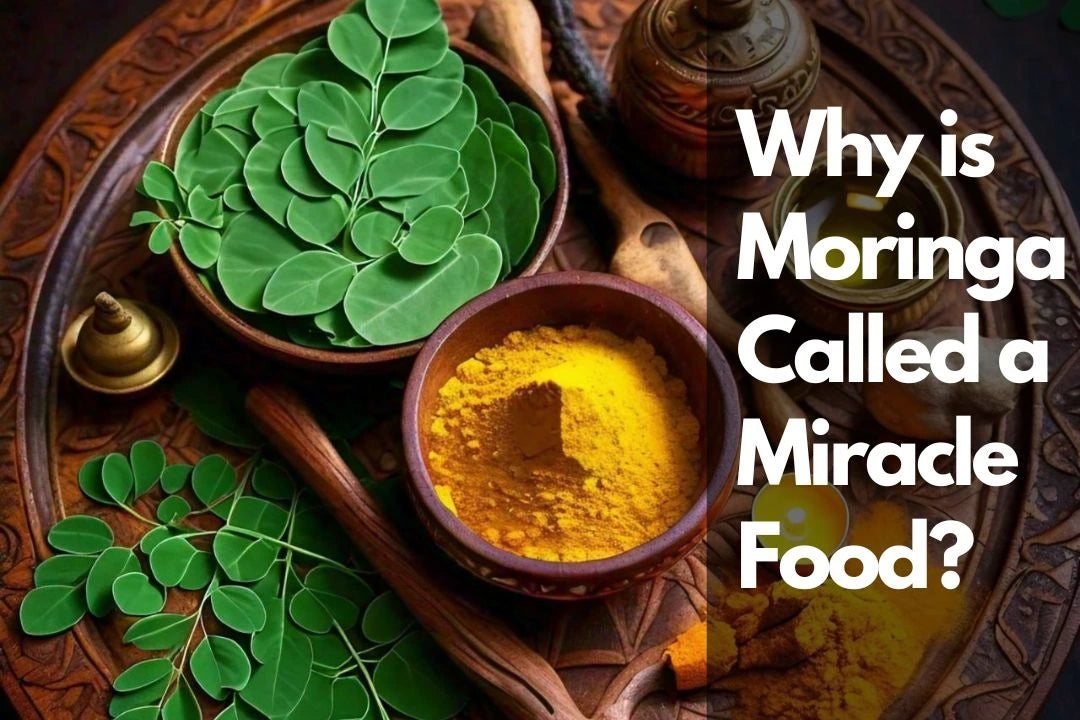Moringa, which is commonly praised as “ the miracle tree” is earning a huge reputation for its remarkable health and medicinal benefits. Due to its high nutritional value, moringa is becoming a staple in many diets. The moringa leaves contain almost all essential nutrients, vitamins, metals, growth factors, protein, etc. Thus, it is used for preparing different types of medicines and nutritional supplements. If you want to know more about this miracle food and want to include it in your diet, this is the right content.
Natural Nutrients from Moringa

Nutrients are vital metabolites that are necessary for the growth and development. The foods we consume contain both micronutrients and macronutrients. Our body requires high amounts of macronutrients like proteins, carbohydrates and fats for overall growth and development. On the other hand, micronutrients are required in less quantity, which include vitamins and minerals. Therefore, it is imperative to make sure that you are consuming a balanced diet rich in nutrients.
Moringa is high in its nutritional value and contains a good amount of antioxidants, which reduces the risk of many chronic diseases like cancer. The outstanding nutritional characteristics of a moringa tree is divided into its various parts like seeds, leaves, pods, barks and flowers. They contain many bioactive compounds and nutritional elements such as protein, calcium, carbohydrates, vitamins, phosphorus, iron, potassium, and beta carotene. Due to the anticancer, antioxidant, antiulcer and antimicrobial properties, this amazing plant compound is also used in the pharmaceutical fields.
The Marvelous Nutritional Profile of Moringa

Moringa is an excellent source of proteins and vital amino acids. As it is also low in carbohydrate and fats, it is praised as a complete dietary supplement. Apart from this, moringa also contains a significant nutritional composition. It is packed with protein, dietary fiber, vitamins, minerals, amino acids, and micronutrients like iron, folate, magnesium, and complex vitamins like B6, vitamin A, C and E.
Moringa even contains minerals like calcium and magnesium that helps with the growth and development. In fact, recent studies have shown that moringa leaves powder contains more calcium than milk. The iron content in moringa also makes it an ideal candidate for treating anemia.
Health Benefits of Moringa
Moringa plants have an amazing array of medicinal uses due to its high nutritional value. Each part of this plant has been consumed for centuries by human beings. On the other hand, it is also used for many other domestic purposes like for water treatment, biogas, animal fodder, alley cropping, fertilizers, biopesticide, etc. Moringa also helps with muscle building and body healing. The antioxidant properties of moringa also protects our cells from oxidative damages. Antioxidants also work to reduce unhealthy fats and lower the blood pressure.
Moringa Lowers Blood Sugar Levels
High blood sugar is a serious problem that needs proper treatment and management. In fact, it is also the main cause of diabetes. Over time, high blood pressure might raise the risk of many health problems, which also includes heart disease. Thus, it is imperative to keep your blood sugar under check. Studies have shown that moringa can help in lowering the sugar levels in the blood. However, there are many studies that need to be conducted before to confirm the same.
Reduce Inflammation

Inflammation is the natural response of the body to any type of infection or injury. It is a natural mechanism of the body, but sustained inflammation can lead to chronic health problems, including cancer and heart disease. Moringa leaves have anti-inflammatory properties, which can be highly beneficial. According to the scientists, isothiocyanates are the anti-inflammatory compounds in moringa that can reduce inflammation.
Protection Against Arsenic Toxicity
Arsenic contamination is also a huge problem in many parts of the world. For instance, certain types of foods will contain high levels of arsenic contamination. Long term exposure to such foods will lead to numerous health problems. This can cause different problems like heart disease and cancer. Interestingly, several studies have shown that the leaves and seeds of moringa may protect against the effects of arsenic toxicity.
Apart from these, as mentioned above, other benefits of moringa include its effects to lower cholesterol and improve the overall immune functions.
How to Include Moringa in your Diet?

With the myriad of options available in the market, it can be simple to include moringa in your diet. From using fresh moringa leaves to prepare stir fries and curries, you can use the powdered form as a supplement. There are many Indian dishes prepared using the fresh moringa leaves. They are also great to improve your digestion and flush out the toxins from the body.
If you are looking for other simple options to include moringa, the moringa noodles from Healthy Master could be a great option. This is a quick ready-made noodle that you can prepare in a giffy. And what’s great about it? They are minimally processed and made using healthy ingredients, which can be highly beneficial for your body. Apart from this, you will also find a huge variety of healthy snacks in the store from which you can choose the best for you.
Conclusion
Moringa is an Indian tree that has been used in culinary and medicinal practices for centuries. Although it showed many promising health and medicinal benefits, more research is required to confirm the same. However, as they are highly nutritious, it can be beneficial for your health and wellness no matter when and how you consume it. Just consume them in moderation to obtain the best benefits.
 Deal of the week : Trial Snack Box - 18 Wholesome Delights Just at ₹ 899.00
Deal of the week : Trial Snack Box - 18 Wholesome Delights Just at ₹ 899.00





















